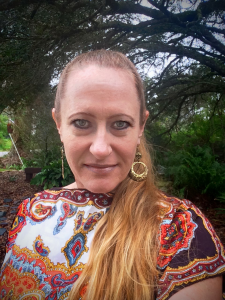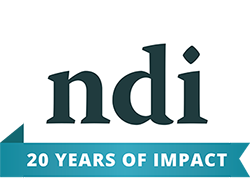By Kate Brouse—Strategic Partnerships Lead at National Telecommuniting Institute
Every month and day of the year seems to be one that some cause or other has claimed. The month of October is one in which we observe several important things including: Breast Cancer  Awareness (around 12 percent of women will be affected in their lifetime); LGBT History (currently 5.6 percent of U.S. adults self-identify as LGBTQ); and National Domestic Violence Awareness (approximately 9 percent of people will be injured by a domestic partner). But the October cause that arguably affects the most people is National Disability Employment Awareness Month (NDEAM).
Awareness (around 12 percent of women will be affected in their lifetime); LGBT History (currently 5.6 percent of U.S. adults self-identify as LGBTQ); and National Domestic Violence Awareness (approximately 9 percent of people will be injured by a domestic partner). But the October cause that arguably affects the most people is National Disability Employment Awareness Month (NDEAM).
Think about all the people you know: family, friends, neighbors; people you’ve met at school, church or community events; the people you regularly interact with at the store, the post office, your favorite local businesses. The number of people the average American knows and recognizes is 600. If we expand that number to include anyone with whom we interact over a lifetime, the number jumps to an astounding 80,000 people.
According to the Centers for Disease Control and Prevention (CDC), 26 percent of adults in the United States have some type of disability. Using 26 percent as guideline, and using the numbers of people we each know and interact with, we can estimate the average person knows 156 people who have a disability and will potentially interact with 20,800 people with disabilities over a lifetime!
When looked at from this perspective, the importance of the disability community becomes very apparent. NDEAM was established due to the stark reality that people with disabilities have higher unemployment rates than average. By shining a light on the importance of disability employment every October, the hope is more businesses and individuals will become aware of not only the great talent they may be overlooking, but the amazing benefits of disability inclusion.
Research shows companies who value inclusion experience increased revenue. Despite this fact, many companies are still not doing enough to attract and retain talent with disabilities. The most often cited reason companies are hesitant to hire such people is the concern that needed accommodations, mandated by the Americans with Disabilities Act (ADA), will be costly.
The reality, however, is most accommodations are simple and free such as: scheduling flexibility, reserved parking spaces, changing job tasks or requirements and the ability to work remotely. And accommodations that do have a cost are usually very affordable; rarely does a needed accommodation cost more than $500. In addition, many myths about employers’ requirements under ADA law exist, such as the misconception that if you hire a worker with a disability, and they don’t end up being a good employee, that you can’t fire them. Dispelling such myths is important and October is a great month to learn more about the benefits of an inclusive workforce and what companies will gain by having employees with disabilities as an integral part of a team.
This year the theme of NDEAM is “America’s Recovery: Powered by Inclusion.” Everywhere across the U.S., companies are scrambling to find employees. Hiring signs are ubiquitous in cities and towns large and small. Employers who are disability-friendly and offer simple accommodations, like part-time work and flexible schedules, will have access to a talent pool often overlooked.
Employers who want to attract talent need to make accessibility an integral part of the hiring and onboarding strategy. Ensuring people with disabilities: 1) know about job openings; 2) can easily apply; and 3) feel comfortable asking for accommodations is an efficient way to reach an often underserved and undervalued population. And hiring from this very population is a proven way to increase profit. The COVID-19 pandemic has increased the number of people with disabilities, and an important step in America’s recovery is understanding that people with disabilities make great employees and are a valuable workforce asset.
Kate Brouse is a disability advocate for national nonprofit National Telecommuting Institute (NTI), the leader in helping Americans with disabilities train for and find work-at-home jobs. From coast to coast, Kate has appeared on talk shows, podcasts and webinars discussing remote work, accessibility, diversity and disability. When not working, she can be found around sunny southwest Florida, either bicycling or reading a book under her oak tree.



